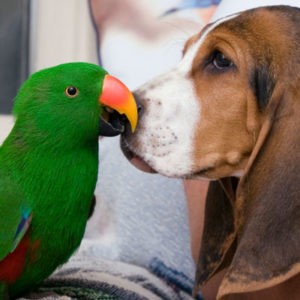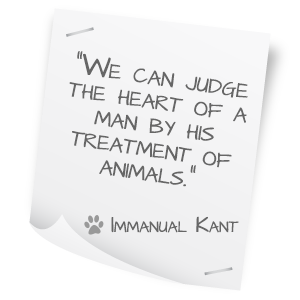Birds are some of the more sensitive creatures in the animal kingdom—as such, they need a healthy environment free of stress in order to remain healthy. As a bird owner, you need to be able to recognize signs of stress in your bird so you can change the stressor and keep your pet happy. Here, a Fayetteville, NC veterinarian tells you about the different ways your bird might be telling you he’s stressed out.
Aggressive Behavior
If your bird starts biting, nipping, lunging, or vocalizing more excessively than normal, a stressor may be to blame. The stressor could be environmental or have something to do with a person in your household. If you can identify a trigger, remove it from the equation and see if your bird’s attitude changes.
Another reason your bird might be exhibiting aggressive behavior is because of pain. Take your bird to your Fayetteville, NC veterinarian immediately if you suspect your bird is hurting.
Frightened Behavior
Sometimes a bird might act frightened of a person that it wasn’t frightened of before. Things as simple as a new facial hair style or a brightly colored shirt might be stressing your bird into fearful behavior. Perhaps another pet in the household is scaring your bird. Try to identify anything that might be frightening your bird and take steps to eliminate the problem.
Destructive Behavior
A destructive bird is very likely a stressed bird. If your pet is wreaking havoc on his cage and toys more than ever, some type of stressor may be to blame. Often birds that are extremely bored become destructive—talk to your Fayetteville, NC vet about combating boredom in birds. If you can’t seem to identify why your bird is acting destructive, call your Fayetteville, NC veterinarian. An underlying health or behavior issue may be the cause.
Loss of Appetite
A bird who stops eating may be reacting to some sort of stressor in his life. It’s also possible that an underlying health issue is making him lose his appetite—the best course of action if your bird isn’t eating right is to make an appointment with your Fayetteville, NC veterinarian and get your pet checked as soon as possible.





